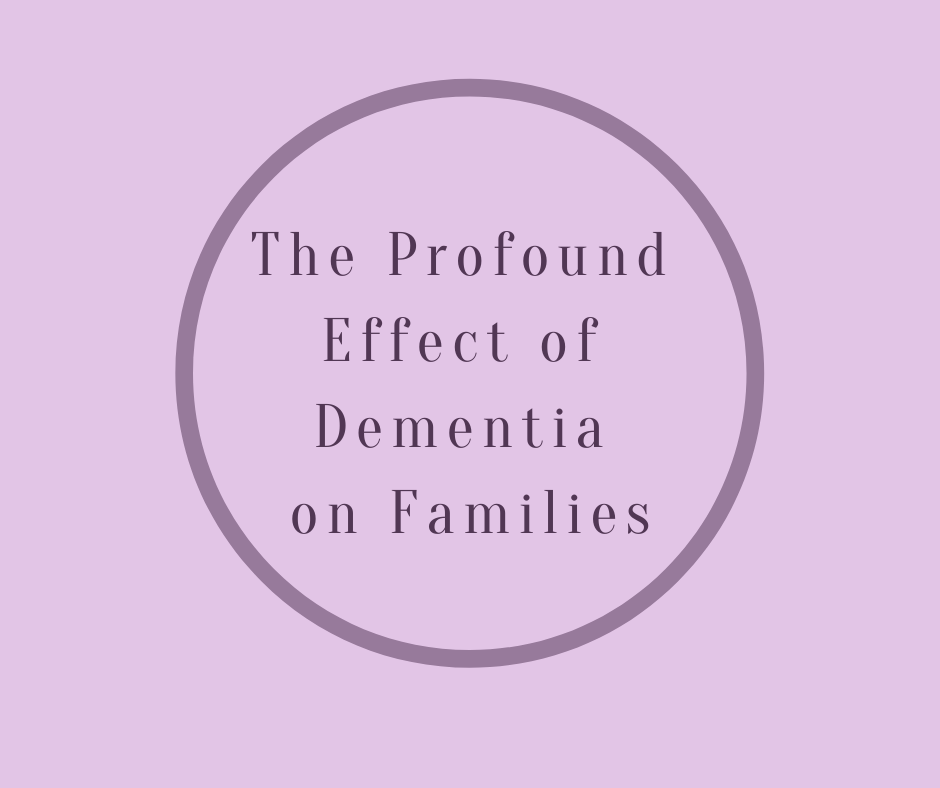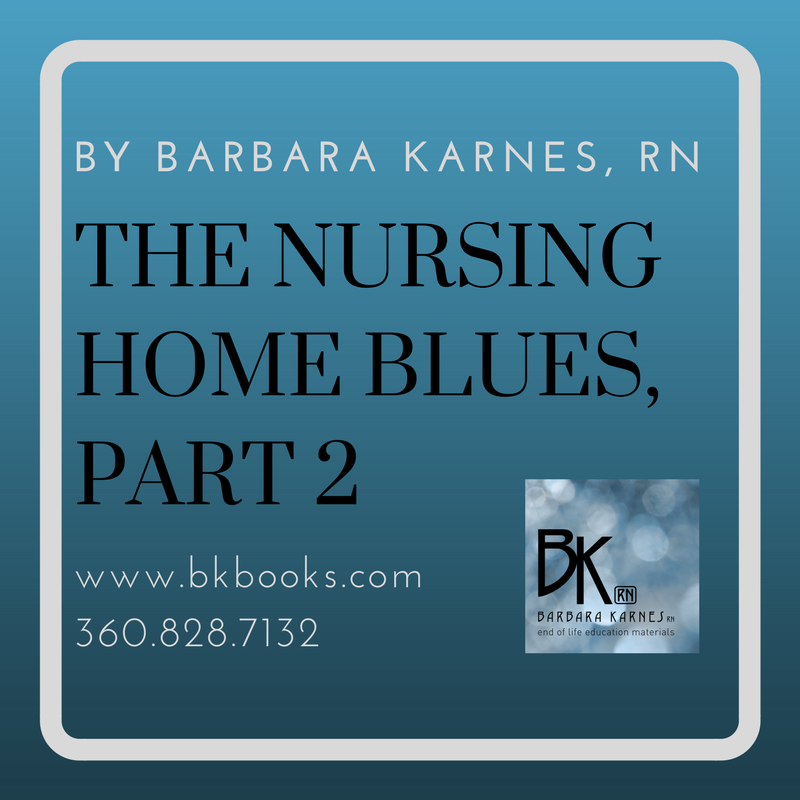For almost 40 years my life has evolved around end of life issues. First in working directly with patients and their families as a hospice nurse. Here is where I learned about approaching death, its signs, the fears it generates, and its resulting grief. Then I learned from an administrative level how to support and guide others in the care of those approaching the end of life.
Intersected throughout those years I began not just teaching my staff and the community but gradually teaching on a broader level. I started an RN LPN training program in cooperation with the Kansas State Hospice Organization and began presenting at state hospice conferences as well as national conferences. When I left direct Hospice employment I began giving workshops and presentations around the country.
My message throughout all this time has been to educate, educate, educate. Educate anyone who will listen about how people die. To help people understand how death comes, what it looks like, (a part of life we will all experience one day) is my focus, to neutralize the fear we all bring to approaching death. With my desire to teach as many people as possible I have created a new end of life educational film, This Is How People Die.
The title explains the content, this is how people die.--fast death, gradual dying, the process of not eating, increased sleeping, withdrawal, the time line, months, weeks, days, hours, what to look for, what occurs, what to do about it.
The idea of this film is to provide, in non medical terminology, a teaching opportunity that anyone watching can relate too and understand. We in the end of life arena are not just medical professionals. We are the community. We come from churches, civic clubs, volunteer programs. We are people without medical backgrounds that through study and outreach are educating ourselves. I see This Is How People Die as an important component to end of life education not just for medical professionals but for all who walk where death can occur. Oh, I guess that means this film is for everyone----because death touches us all.
This Is How People Die is done in three parts, each give or take an hour. Long enough, but not too long, to use as a three part inservice teaching tool for hospice and hospital staff, for hospice, transition, and Eleventh Hour volunteers, for nursing facilities (all their staff), for medical universities, for nursing and social work classrooms, for chaplaincy programs and end of life doula training curriculum, for church and senior study groups, for Stephen Ministries classes, and for private duty agencies staff inservice. I see it as a must have end of life education tool. This is a film that provides the foundation from which to understand dying from disease and old age. It provides the knowledge to distinguish between knowing what is natural in dying and what is pathological. It provides information that can neutralize the fear associated with end of life.
I have looked forward to introducing this new film. Here is the trailer.
I’m thinking you are going to be as excited about using this teaching tool as I am giving it to you.
Blessings,
Barbara








3 comments
Barbara Karnes
Hi Iris, thank you for your feedback about the cost of my new film This Is How People Die. I produced this film at the request of numerous healthcare agencies and schools to use with their E-learning programs and to provide a more comprehensive end of life in-service for staff and volunteers, It is in three parts equaling 3 hours.
My DVD, New Rules For End of Life Care, is 25 minutes and specifically done for lay people (although the medical community uses it for in-servicing and education.) The cost of this DVD is $29.00. There is a trailer for this DVD on our website.
Blessings! Barbara
Hi Iris, thank you for your feedback about the cost of my new film This Is How People Die. I produced this film at the request of numerous healthcare agencies and schools to use with their E-learning programs and to provide a more comprehensive end of life in-service for staff and volunteers, It is in three parts equaling 3 hours.
My DVD, New Rules For End of Life Care, is 25 minutes and specifically done for lay people (although the medical community uses it for in-servicing and education.) The cost of this DVD is $29.00. There is a trailer for this DVD on our website.
Blessings! Barbara
Iris
Dear Ms. Karnes,
I was surprised at the $300 cost for your new DVD. I’m sure it covers a larger amount of information probably for large institution staff training. Maybe there will be a more affordable version in the future.
Thank you
Dear Ms. Karnes,
I was surprised at the $300 cost for your new DVD. I’m sure it covers a larger amount of information probably for large institution staff training. Maybe there will be a more affordable version in the future.
Thank you
Nancy Buckingham
Your trailer is very good, my husband has been on hospice for 10 months. I watched my mother in a bed for 7 years, completely different people, different circumstance s, however he is transitioning.. I don’t know for how long. I long to know what his brain is thinking, I ask and most of the time he says nothing, I don’t really know, it is difficult. I’ve watched many family members, my very best friend.. it’s difficult
Your trailer is very good, my husband has been on hospice for 10 months. I watched my mother in a bed for 7 years, completely different people, different circumstance s, however he is transitioning.. I don’t know for how long. I long to know what his brain is thinking, I ask and most of the time he says nothing, I don’t really know, it is difficult. I’ve watched many family members, my very best friend.. it’s difficult